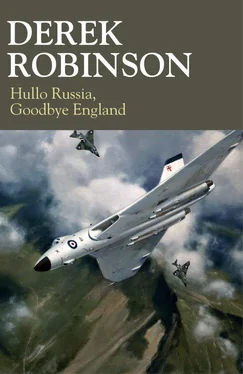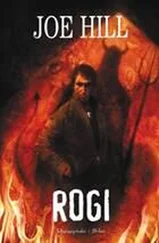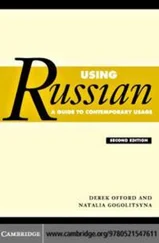The eyepatches are not fiction. The Vulcan cockpit had windshield blinds which could be used to hide a nuclear flash; but as an extra safeguard against total blindness, aircrew were indeed issued with an eyepatch. By 1962, Quick Reaction Alert (QRA) and Operational Readiness Platforms (ORP) were standard procedures on Vulcan squadrons. When bombers were scrambled, the thrust of their engines was truly massive: on one base it repositioned the town rubbish dump, unwisely sited near the perimeter fence. Ejection seats – ‘bang seats’ – were provided only for pilot and co-pilot. In time of trouble, the rest of the crew were expected to bale out through the door in front of the nose wheel – by no means an easy exit, given the height, speed and perhaps damaged condition of the aircraft.
The title is apt. If the policy of nuclear deterrence failed and Vulcans were sent to retaliate, they would never turn back until their task was done; and then turning back would be pointless, because every home base would have been obliterated. Few aircrew, if any, seem to have lost any sleep over this bleak scenario. Perhaps their maturity and experience shaped their outlook. Many had served in Bomber Command since the early days of World War Two, when they flew such vintage machines as the Battle or the Hampden. Silk’s arrival on 409 Squadron brought the average age of Quinlan’s crew below forty. This situation was not unknown. Bomber Command liked seasoned performers in its nuclear aircraft.
The Cold War needed no invention: the reality of MAD – Mutual Assured Destruction – was chilling enough. Reports by the Conservative Medical Association and the Royal College of Nursing are fact. Captain Red Black’s task – to bomb East Berlin while, within a minute, it was being destroyed by two Thor missiles – was part of the strategy known as ‘cross-targeting’. An official history of the Cuban Missile Crisis comments: ‘The pilot assigned this task is remembered as the individual who sweated the most during cockpit alert.’
I had no need to embroider that Crisis: the bare facts provide ample material. It is true that the telephone link between SAC HQ and Bomber Command HQ fell silent; that SAC signals were transmitted in plain English for the benefit of Soviet ears; and that B52s flew threateningly close to Soviet borders. In mid-Crisis, SAC – without warning the Soviet Union – launched an Atlas intercontinental ballistic missile over the Pacific, later revealing that it was unarmed. At about the same time, the US radar network reported a missile launch in Cuba, aimed at America – a radar technician had mistakenly inserted a test tape into the system. Luckily someone aborted the process of knee-jerk retaliation. That was not the only cock-up.
General Curtis LeMay was, by his own account, the most hawkish of hawks. On the other side, Kruschev was indeed persuaded that Americans would mistake Cuban missiles for palm trees; and Russian forces (to protect the missile sites) turned out to be far greater than he had expected. Generals always need more troops, sometimes to protect the troops they already have. By contrast the British response to the Crisis was laid-back: RAF nuclear bombers were not sent to their dispersal fields.
The acronym SMIT is invented but the policy it stood for is not: British (and American) nuclear defence was based on the assumption that mounting international tension would allow time to prepare for war. Preparation is one thing; action is another. The survival of Great Britain might well have hinged on whether or not Prime Minister Macmillan was on the road. There was a vital link between his Rolls-Royce and the Automobile Association. All messages to and from Macmillan’s car-phone – cutting-edge technology in those days – went via the AA network, normally used to communicate with its motorcycle patrolmen. If Russia attacked Britain, the AA would find the PM and tell him.
A generation is growing up which did not know the Cold War. They may find it hard to imagine what life was like for aircrew on a Vulcan squadron: endlessly rehearsing the task of penetrating deep into Soviet air defences; knowing by heart the street plans of Russian cities; shaping their lives around the possibility that a scramble order could, at any moment, send them airborne to wipe out those cities, with very little chance of return. Hullo Russia, Goodbye England can convey only a fraction of the flying skills, the high endeavour and the mental strength that the job demanded. The scramble order never came. Nuclear deterrence worked. We should be thankful.
* * *
While working on Hullo Russia, Goodbye England , I was fortunate to meet Air Commodore Brian Sills. He flew the Victor nuclear bomber in the period that included the Cuban Missile Crisis; later he was Station Commander at RAF Waddington, where four Vulcan squadrons were based, and he regularly flew that aircraft. His expert advice has been invaluable in helping me to avoid pitfalls and inaccuracies. Any errors that appear are entirely my fault.
______________________
Derek Robinsonread history at Cambridge before working in advertising in London and New York. He has also worked as a broadcaster for radio and television, and was a grassroots rugby referee for thirty years. His novel Goshawk Squadron was shortlisted for the Booker Prize in 1973.
PRAISE FOR DEREK ROBINSON
“Robinson should be mentioned in the same breath as Mailer, Ballard or Heller. A masterpiece” Express
“Tough, taut prose that pulls you through the book like a steel cable… great” Guardian
“Robinson writes with tireless enthusiasm which never sacrifices detail to pace, or vice versa… terrific” Jennifer Selway, Observer
“Derek Robinson has developed a brand of ‹ripping-yarn› all his own… hard-bitten stuff, anti-Newbolt and anti-Biggles” Times Literary Supplement
“Robinson is a better storyteller than Jeffrey Archer, Ken Follett or Wilbur Smith… His is a rare achievement, difficult to attain and one not much striven for in the current literary output, the creation of poetry in fiction” Tibor Fischer, The Times
“Robinson has a narrative gift that sets up the hackles of involvement. A rare quality” Paul Scott
“Nobody writes about war quite like Derek Robinson. He has a way of carrying you along with the excitement of it all before suddenly disposing of a character with a casual, laconic ruthlessness that is shockingly realistic… As a bonus, he writes of the random, chaotic comedy of war better than anyone since Evelyn Waugh” Mike Petty, The Independent
“If the argument that book reviews sell more books is ever proven, then reviews of Robinson’s books should be posted on every wall, hydrant and lease-expired storefront. They should be free with your breakfast cereal. They should be dropped from planes – for the only purpose of reviewing Robinson’s case is to persuade readers who have yet to pick up a Robinson novel to do so in their millions” Julian Evans, Weekend Post
“Robinson mixes the action with cynicism and hard-bitten humour that has you halfway between tears and laughter. Biggles was never like this” Daily Express
“The descriptions of patrolling and aerial combat are superlatively well done… Stronger tastes will relish the whiff of battiness and brimstone” Times Literary Supplement
The R.F.C. trilogy*
Goshawk Squadron
Hornet’s Sting
War Story
The R.A.F Quartet*
Piece of Cake
Читать дальше












